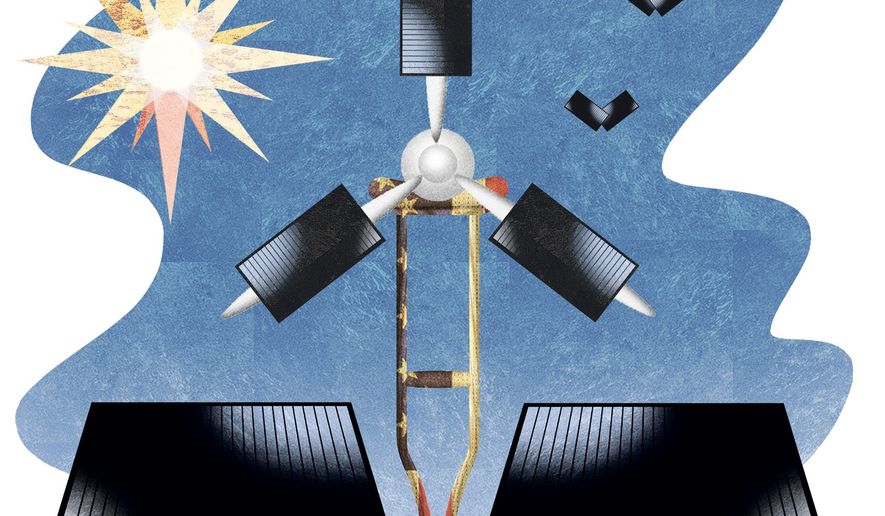OPINION:
One of President Biden’s key goals in the Inflation Reduction Act is to incentivize domestic manufacturing of solar panels and other materials. And due to the bill’s extensive tax credits, domestic producers have already announced billions of dollars’ worth of new solar investments in the United States. But the solar emergency declaration that the president issued last summer is putting this investment in jeopardy.
The president’s solar declaration allows China’s solar producers to bypass U.S. trade laws — something that both Democrats and Republicans in Congress consider a mistake. In response, Reps. Bill Posey, Florida Republican, and Dan Kildee, Michigan Democrat, have introduced a bipartisan resolution to overturn the declaration.
Last year, the Department of Commerce launched an investigation into Chinese solar companies circumventing U.S. trade laws. In its preliminary finding, Commerce determined that four Chinese companies were deliberately routing solar cells and modules through Malaysia, Thailand, Vietnam and Cambodia in order to avoid U.S. tariffs.
That’s a clear violation of U.S. trade laws. But equally concerning is that some of these solar companies — including Trina Solar and Longi — have also been identified as using forced labor in Xinjiang, in western China, to obtain their raw materials. Under federal law, goods produced through forced labor in Xinjiang are forbidden to enter the United States.
The problem is that the administration’s solar declaration effectively neutralizes the Department of Commerce’s investigation of these Chinese solar companies. As a result, China’s solar manufacturers — the very ones found to be violating U.S. laws — will have a free pass to avoid U.S. tariffs for the next two years.
Why would the administration do this when the Commerce Department’s initial investigation found that Chinese solar manufacturers are “dumping” heavily subsidized products in the U.S. to put our solar companies out of business?
In his emergency declaration, the president asserted that the U.S. has been “unable to import solar modules in sufficient quantities” to meet his timetable for solar panel deployment. A closer look at the facts, however, shows that this is incorrect.
In 2018, the Trump administration imposed tariffs on Chinese solar panels sold in the U.S. at less than fair market value. After the tariffs were in place, U.S. manufacturers built more factories, and solar prices actually dropped. Since then, America’s solar manufacturers have continued to increase production. In 2019, they reached a 10-year high for market share in the U.S.
The reality is that the president’s emergency declaration came after intense lobbying from the Solar Energy Industries Association, a trade group that represents a number of Chinese solar manufacturers. Last year, the Commerce Department announced that it was investigating three of the association’s Chinese members for illegal trade activity, including forced labor. The trade group’s members include U.S. subsidiaries of such major Chinese producers as JinkoSolar, JA Solar, Trina Solar, BYD and Longi Solar. A final determination by the Commerce Department is due in May.
The legislation that Reps. Posey and Kildee have introduced to repeal the president’s solar declaration represents an important bipartisan effort to stand up to the lobbying of China — particularly the Solar Energy Industries Association and the Chinese manufacturers under investigation by the Commerce Department. Some lawmakers consider the issue serious enough that the House Energy and Commerce Committee has announced plans to hold hearings on the president’s solar declaration.
Congress is right to stand up for America’s solar energy equipment manufacturers and hold China accountable for violating U.S. trade law. The House and Senate should swiftly pass this bipartisan legislation and ensure that the administration’s free pass for Chinese companies is revoked.
• Michael Stumo is CEO of the Coalition for a Prosperous America. Follow him on Twitter @michael_stumo.




Please read our comment policy before commenting.